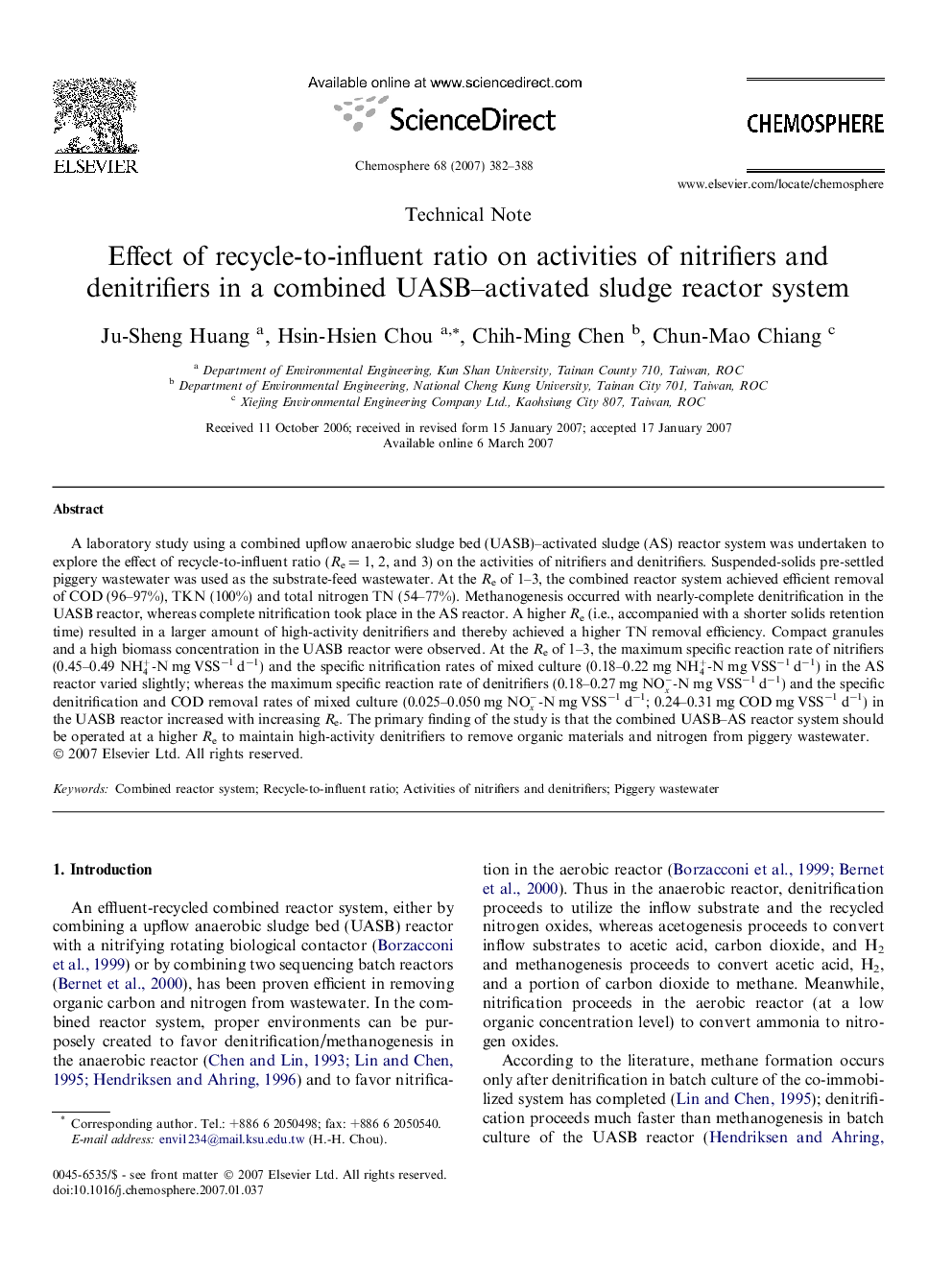| کد مقاله | کد نشریه | سال انتشار | مقاله انگلیسی | نسخه تمام متن |
|---|---|---|---|---|
| 4415750 | 1307757 | 2007 | 7 صفحه PDF | دانلود رایگان |

A laboratory study using a combined upflow anaerobic sludge bed (UASB)–activated sludge (AS) reactor system was undertaken to explore the effect of recycle-to-influent ratio (Re = 1, 2, and 3) on the activities of nitrifiers and denitrifiers. Suspended-solids pre-settled piggery wastewater was used as the substrate-feed wastewater. At the Re of 1–3, the combined reactor system achieved efficient removal of COD (96–97%), TKN (100%) and total nitrogen TN (54–77%). Methanogenesis occurred with nearly-complete denitrification in the UASB reactor, whereas complete nitrification took place in the AS reactor. A higher Re (i.e., accompanied with a shorter solids retention time) resulted in a larger amount of high-activity denitrifiers and thereby achieved a higher TN removal efficiency. Compact granules and a high biomass concentration in the UASB reactor were observed. At the Re of 1–3, the maximum specific reaction rate of nitrifiers (0.45–0.49 NH4+-N mg VSS−1 d−1) and the specific nitrification rates of mixed culture (0.18–0.22 mg NH4+-N mg VSS−1 d−1) in the AS reactor varied slightly; whereas the maximum specific reaction rate of denitrifiers (0.18–0.27 mg NOx--N mg VSS−1 d−1) and the specific denitrification and COD removal rates of mixed culture (0.025–0.050 mg NOx--N mg VSS−1 d−1; 0.24–0.31 mg COD mg VSS−1 d−1) in the UASB reactor increased with increasing Re. The primary finding of the study is that the combined UASB–AS reactor system should be operated at a higher Re to maintain high-activity denitrifiers to remove organic materials and nitrogen from piggery wastewater.
Journal: Chemosphere - Volume 68, Issue 2, June 2007, Pages 382–388